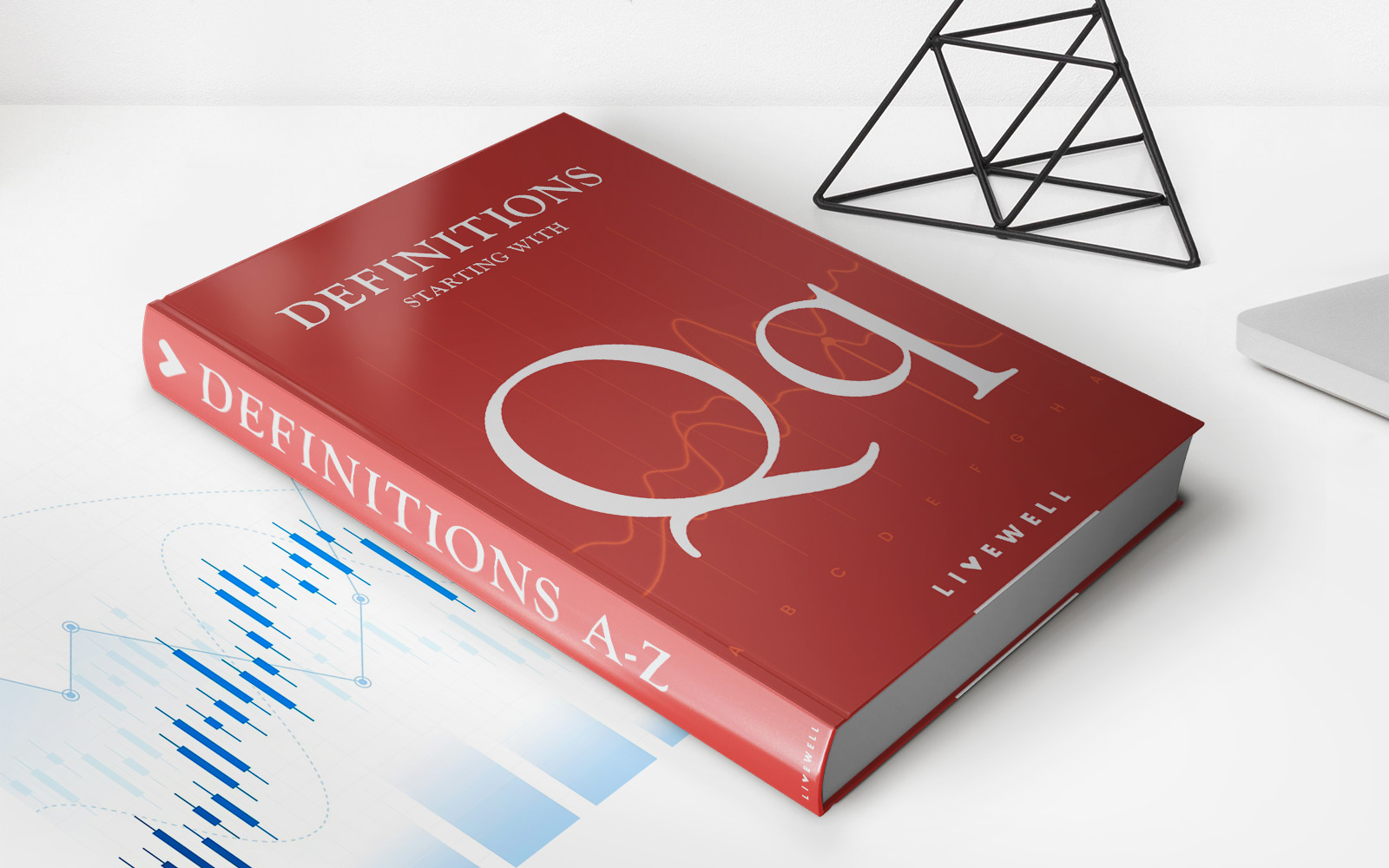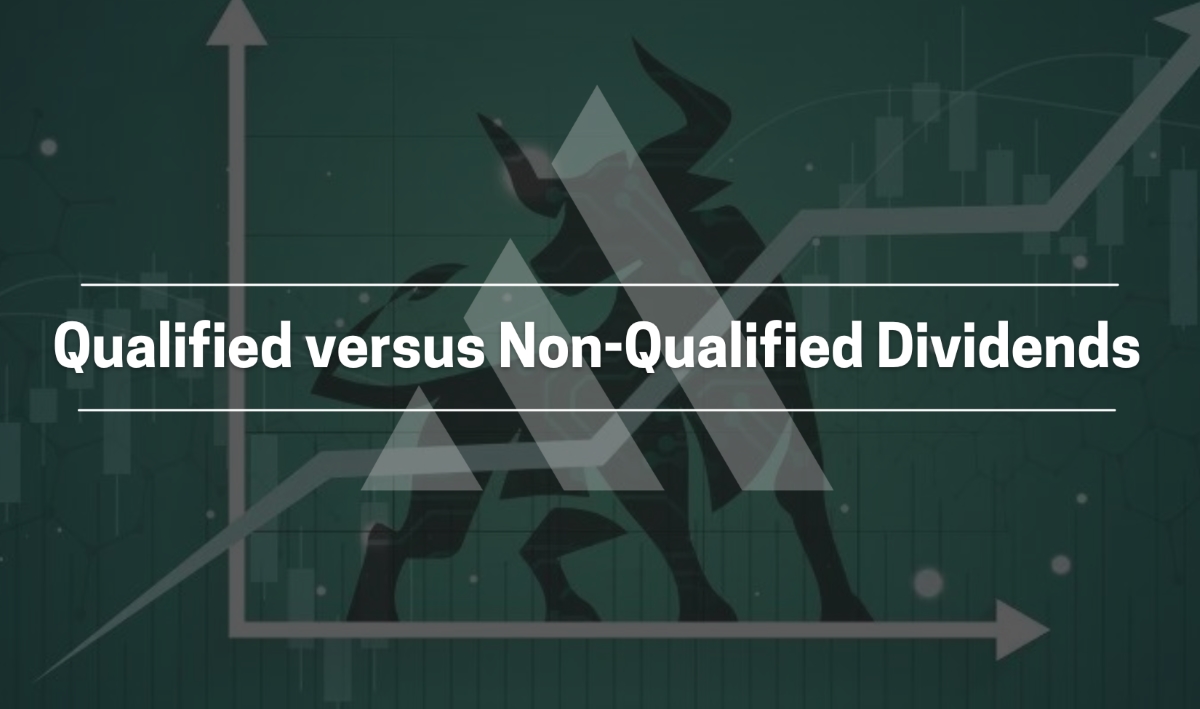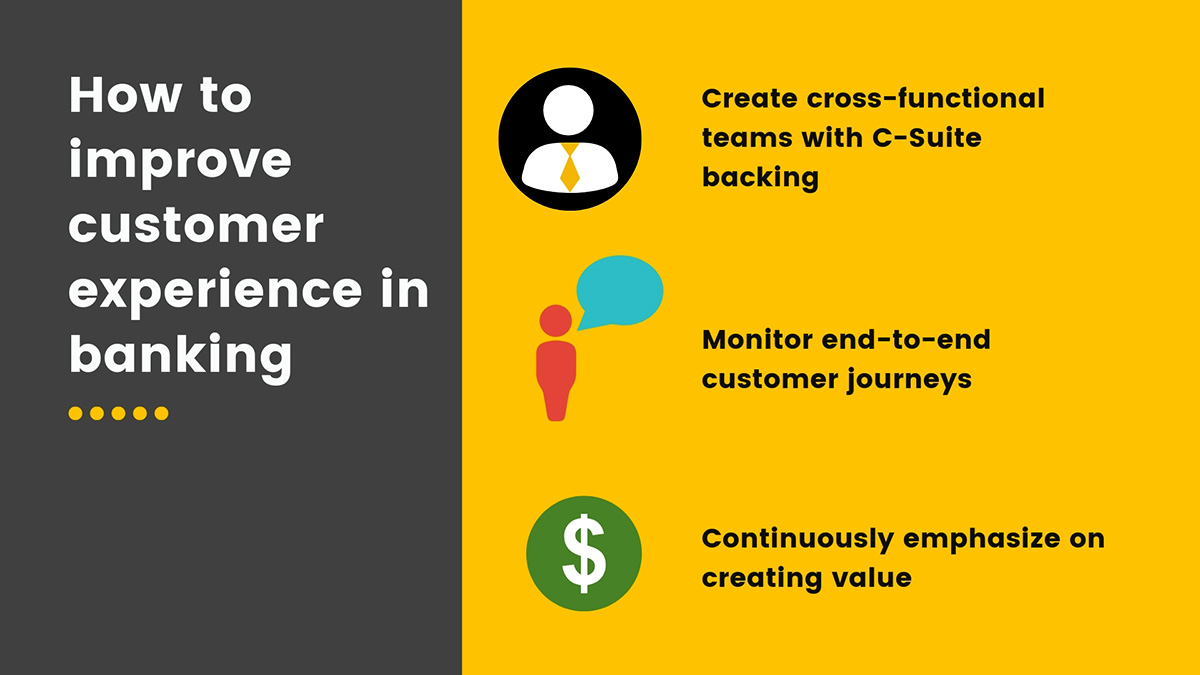

Finance
What Qualifies As Accounting Experience
Modified: February 21, 2024
Discover what qualifies as accounting experience and how it relates to finance. Gain insights on the necessary skills and background needed for a successful career in finance.
(Many of the links in this article redirect to a specific reviewed product. Your purchase of these products through affiliate links helps to generate commission for LiveWell, at no extra cost. Learn more)
Table of Contents
Introduction
When it comes to qualifying for a finance position, having accounting experience is often seen as a prerequisite. But what exactly qualifies as accounting experience? Is it just limited to having a degree in accounting, or does it encompass other aspects as well?
In this article, we will explore the various elements that contribute to accounting experience. From education and training to professional certifications and work experience, we will delve into the qualifications that define someone as having accounting experience. Whether you are a recent graduate looking to enter the field or a seasoned professional seeking to enhance your resume, understanding what qualifies as accounting experience can help guide your path.
While a degree in accounting is undoubtedly a crucial foundation, it is important to note that accounting experience extends beyond formal education. Employers value practical skills, industry-specific knowledge, and hands-on experience. By gaining a comprehensive understanding of the different aspects that contribute to accounting experience, you can meet the expectations of potential employers and stand out in a competitive job market.
So, let’s embark on this journey to uncover what qualifies as accounting experience. Whether you are a recent graduate, career changer, or someone looking to advance in their current finance role, this article will shed light on the different avenues to gain accounting experience and position yourself as a strong candidate.
Definition of Accounting Experience
Accounting experience refers to the practical knowledge and skills acquired through education, training, certifications, and work experience in the field of accounting. It encompasses a range of activities related to financial record-keeping, analysis, and reporting.
At its core, accounting involves the systematic recording, classification, and reporting of financial transactions. Accounting experience includes understanding and applying accounting principles, knowledge of financial statements, proficiency in utilizing accounting software, and the ability to analyze and interpret financial data.
Accounting experience can be gained through various avenues, such as formal education, professional certifications, internships, entry-level positions, volunteer roles, and continuous professional development.
In addition to technical knowledge, accounting experience involves the development of skills such as attention to detail, analytical thinking, problem-solving, and effective communication. These skills are crucial for accurately recording financial information, identifying discrepancies, resolving issues, and presenting financial data to stakeholders.
Furthermore, accounting experience extends beyond the core competencies of financial record-keeping. It includes expertise in areas such as tax compliance, auditing, financial analysis, budgeting, and risk management. Proficiency in using accounting software programs, such as QuickBooks, Excel, or SAP, is also an essential aspect of accounting experience.
Ultimately, accounting experience is a multifaceted combination of theoretical knowledge, practical skills, and real-world application of accounting principles. It goes beyond simply possessing a degree in accounting and encompasses the ability to apply accounting concepts in practical scenarios, efficiently manage financial data, and contribute to the financial success of an organization.
Having a solid understanding of what qualifies as accounting experience is crucial for individuals seeking to enter or advance in the field of accounting. It enables them to showcase their expertise, credibility, and potential value to employers while positioning themselves as competent and capable accounting professionals.
Education and Training in Accounting
Education is a fundamental component of accounting experience. Obtaining a formal education in accounting provides individuals with the theoretical knowledge and foundational understanding of the principles and practices in the field.
To pursue a career in accounting, individuals typically acquire a bachelor’s degree in accounting or a related field, such as finance or business administration. This degree equips them with a solid understanding of accounting principles, financial analysis, auditing, taxation, and management accounting.
In addition to a bachelor’s degree, some individuals may choose to pursue a master’s degree in accounting or a specialized field such as forensic accounting, taxation, or financial planning. A master’s degree can provide advanced knowledge and specialized skills that offer a competitive edge in the accounting job market.
Many universities and colleges offer coursework and degree programs that meet the requirements for becoming a Certified Public Accountant (CPA), which is a prestigious certification in the accounting profession. CPA requirements often include completing a minimum number of accounting and business-related courses, as well as meeting specific work experience and examination requirements.
Moreover, continuing professional education (CPE) is vital for accountants to stay updated with industry trends, changes in regulations, and advancements in accounting technology. CPE courses and certifications demonstrate an individual’s commitment to professional development and ensure ongoing competence in the field.
Apart from classroom education, individuals can enhance their accounting knowledge and skills through professional training programs and workshops. These programs cover specific accounting topics, software training, and industry-specific practices, providing individuals with practical knowledge and real-world applications.
It’s also worth noting that while a formal education is valuable, practical experience complements theoretical knowledge. Many accounting positions require candidates to have a combination of both education and work experience, as practical experience helps individuals apply their academic knowledge in real-world scenarios and strengthens their understanding of accounting principles.
Overall, education and training in accounting play a significant role in developing the necessary foundation and knowledge base required for a successful career in the field. By obtaining relevant degrees, pursuing specialized education, and engaging in continuous professional development, individuals can enhance their accounting experience and position themselves as qualified and competent accounting professionals.
Professional Accounting Certifications
Obtaining professional accounting certifications is a notable way to enhance one’s accounting experience and demonstrate expertise in specific areas of accounting. These certifications validate an individual’s knowledge, skills, and commitment to maintaining high professional standards.
One of the most recognized and widely sought-after certifications in the accounting field is the Certified Public Accountant (CPA) designation. CPAs are licensed professionals who have met specific education, examination, and work experience requirements set by their respective state or jurisdiction. Becoming a CPA entails passing the Uniform CPA Examination, which tests candidates on various areas of accounting, such as financial accounting, auditing, taxation, and business concepts. Having a CPA designation can open doors to advanced career opportunities, increased earning potential, and greater credibility in the accounting profession.
Another popular certification is the Certified Management Accountant (CMA) designation. The CMA certification is offered by the Institute of Management Accountants (IMA) and focuses on management accounting and financial management. CMAs demonstrate expertise in financial planning, analysis, decision-making, and control within organizations. The CMA designation is highly regarded in management accounting roles and can lead to career advancement in areas such as financial management, strategic planning, and performance management.
For individuals interested in the field of internal auditing, becoming a Certified Internal Auditor (CIA) is a valuable certification. The CIA designation is offered by the Institute of Internal Auditors (IIA) and signifies expertise in internal auditing practices, risk management, and internal controls. CIAs play a critical role in ensuring organizational compliance and identifying areas for improvement in risk management processes.
There are also certifications tailored to specific industries or accounting roles. For example, the Certified Fraud Examiner (CFE) certification is designed for individuals specializing in fraud prevention, detection, and investigation. This certification emphasizes knowledge and skills related to identifying and preventing fraud, conducting investigations, and maintaining ethical practices.
Additionally, certifications such as the Chartered Financial Analyst (CFA) designation and the Financial Risk Manager (FRM) certification are geared towards individuals in the finance industry who work closely with investment management, portfolio analysis, and risk assessment.
While these certifications often require additional education, examinations, and ongoing professional development, they can significantly enhance an individual’s accounting experience and provide a competitive edge in the job market. Employers often value the specialized knowledge and commitment to professional growth demonstrated by individuals who hold these certifications.
Overall, professional accounting certifications offer a way for individuals to showcase their expertise and dedication in specific areas of accounting. By pursuing these certifications, individuals can strengthen their accounting experience, expand their career prospects, and achieve professional recognition within the accounting field.
Work Experience in Accounting
Work experience in accounting is a crucial component of accounting experience as it provides individuals with practical application of their knowledge and allows them to develop key skills required in the field.
One of the most common ways to gain work experience in accounting is through internships. Internships offer opportunities to work in a professional accounting environment and gain hands-on experience in various areas such as financial reporting, bookkeeping, tax preparation, and auditing. Internships can be a stepping stone to future job opportunities and help individuals build a network of contacts in the industry.
Entry-level positions in accounting, such as accounting clerk, bookkeeper, or accounts payable/receivable roles, also provide valuable work experience. In these roles, individuals handle day-to-day accounting tasks, process financial transactions, reconcile accounts, and assist with financial reporting. These positions offer exposure to accounting software, financial systems, and industry-specific processes, allowing individuals to develop practical skills and expand their accounting experience.
As individuals progress in their accounting career, they can take on more advanced roles such as senior accountant, financial analyst, or assistant controller. These positions involve higher-level responsibilities such as financial analysis, budgeting, variance analysis, and financial statement preparation. Work experience in these roles deepen knowledge of accounting principles, strengthen analytical skills, and contribute to strategic decision-making within an organization.
For individuals aiming for leadership roles in accounting, such as CFO or controller positions, gaining managerial experience is essential. Managing a team, overseeing financial operations, and providing guidance on complex accounting issues are integral parts of these roles. As individuals gain managerial experience, they develop not only accounting expertise but also leadership and communication skills.
Work experience in accounting is not limited to traditional employment. Some individuals gain valuable experience through freelance or contract work, providing accounting services to various clients. This type of work allows individuals to apply their accounting skills in different industries, work on diverse projects, and further expand their accounting experience.
It’s worth noting that work experience can vary depending on the industry or sector. For example, individuals working in public accounting firms might gain experience through auditing a range of clients, while those working in industry-specific roles may focus on financial analysis, cost accounting, or regulatory compliance within a specific sector.
Overall, work experience in accounting is an essential aspect of accounting experience. It not only demonstrates an individual’s ability to apply accounting knowledge in practical scenarios but also develops critical skills, hones expertise, and exposes individuals to the real-world challenges and demands of the accounting profession.
Internships and Entry-Level Positions
Internships and entry-level positions play a pivotal role in building accounting experience and setting the foundation for a successful career in the field. They offer individuals the opportunity to gain practical skills, industry-specific knowledge, and valuable professional connections.
Internships provide hands-on experience in a real-world accounting environment. They allow individuals to apply their academic knowledge to practical scenarios and gain a deeper understanding of accounting principles. Interns often work closely with experienced professionals, assisting with tasks such as financial analysis, data entry, reconciliations, and preparing financial statements. Internships also offer exposure to accounting software, industry-specific processes, and regulatory compliance, helping individuals develop practical skills and familiarity with industry practices.
Internships can be found in a wide range of organizations, including accounting firms, corporations, non-profit organizations, and government agencies. They may be paid or unpaid, and the duration can vary from a few weeks to several months. Internships provide a valuable opportunity to network with professionals in the field, learn from their experience, and gain insights into potential career paths.
Entry-level positions are another avenue for gaining accounting experience. These roles, such as accounting clerk, bookkeeper, or accounts payable/receivable positions, provide individuals with hands-on experience in daily accounting tasks. In these positions, individuals handle tasks such as processing financial transactions, recording journal entries, reconciling accounts, and assisting with financial reporting. Entry-level positions offer exposure to accounting software and systems, familiarize individuals with industry-specific processes, and build foundational skills in areas such as data analysis and financial record-keeping.
One of the advantages of entry-level positions is the opportunity for growth and advancement within an organization. As individuals gain experience and demonstrate their competence in their roles, they may take on additional responsibilities, such as assisting with budgeting, cost analysis, or more complex accounting tasks. Entry-level positions also provide exposure to different aspects of the accounting field, allowing individuals to explore various accounting specializations and identify their areas of interest.
Internships and entry-level positions provide employers with the opportunity to assess an individual’s potential for growth and determine their fit within the organization. For individuals, they serve as a platform to demonstrate their skills, work ethic, and commitment to professional growth. Additionally, these positions can serve as a pathway to full-time employment, with many companies hiring interns or entry-level employees who have proven their competence and dedication through their work.
Overall, internships and entry-level positions are indispensable for gaining accounting experience. They offer individuals the chance to apply theoretical knowledge in real-world settings, develop practical skills, and build a strong foundation for a successful career in the accounting field.
Volunteer Accounting Roles
Volunteering in accounting roles can be a valuable way to gain accounting experience, make a positive impact, and contribute to the community. While volunteer positions may not provide financial compensation, they offer unique opportunities to develop skills, expand knowledge, and enhance one’s accounting experience.
Non-profit organizations, community groups, and charities often seek volunteers with accounting expertise to help manage their financial operations. Volunteer accounting roles can encompass a wide range of responsibilities, including financial record-keeping, budgeting, financial reporting, grant management, and tax compliance.
By volunteering in accounting roles, individuals gain hands-on experience in managing financial transactions, interpreting financial statements, and tracking expenses. They also have the opportunity to work with accounting software, such as QuickBooks or nonprofit-specific software, which further enhances their technical skills. Working in a volunteer capacity allows individuals to apply their accounting knowledge in a practical setting, while also developing problem-solving abilities and critical analytical skills.
Volunteering in accounting roles can also provide exposure to different industries and sectors. Non-profit organizations, for instance, often have unique accounting requirements and regulations. By volunteering in these organizations, individuals gain insights into the specific financial challenges and goals that non-profits face, such as managing restricted funds or reporting on grants and donations.
Moreover, volunteer roles often provide the opportunity to work with professionals in the accounting field, either as mentors or as part of a team. Collaborating with experienced accountants and financial professionals allows volunteers to learn from their expertise, gain valuable insights, and expand their professional networks.
Volunteering in accounting roles can be particularly beneficial for recent graduates or individuals making a career transition. It provides a platform to gain real-world experience, fill gaps in employment history, and demonstrate a commitment to professional development. Employers often value volunteer experience as it showcases an individual’s dedication, work ethic, and willingness to contribute beyond their immediate responsibilities.
Additionally, volunteering in accounting roles can lead to paid job opportunities. Non-profit organizations often hire volunteers for paid accounting positions when they have vacancies or when they recognize the value and dedication of a volunteer’s contributions. The experience gained through volunteering can serve as a stepping stone to securing employment in the accounting field.
Overall, volunteering in accounting roles offers a unique avenue to gain practical experience, contribute to meaningful causes, and augment one’s accounting experience. It allows individuals to develop technical skills, broaden their industry knowledge, and showcase their commitment to making a positive impact while positively influencing their career trajectory in the field of accounting.
Accounting Software Proficiency
In today’s digital age, proficiency in accounting software is a vital component of accounting experience. As technology continues to shape the accounting profession, knowledge and proficiency in accounting software have become essential skills for accountants at all levels.
Accounting software automates and streamlines many accounting tasks, from recording transactions to generating financial reports. Proficiency in accounting software allows individuals to efficiently manage financial data, analyze financial information, and provide accurate and timely reporting to stakeholders.
There are several popular accounting software programs available, such as QuickBooks, Xero, Sage, and SAP. Each software has its own features, user interface, and functionality. Having experience and familiarity with these software programs demonstrates an individual’s ability to adapt to different accounting systems and work effectively with the tools used in the industry.
Proficiency in accounting software includes various skills, such as entering and managing financial transactions, reconciling accounts, generating financial statements, and utilizing advanced features like budgeting and forecasting. It also involves understanding the impact of software settings on financial results and being able to troubleshoot and resolve any software-related issues.
Accounting software proficiency not only enhances an individual’s efficiency and accuracy in performing accounting tasks but also facilitates collaboration and communication within a team or with clients. Many accounting software programs have collaborative features that allow multiple users to access and work on financial data simultaneously, making it easier to collaborate with colleagues or clients for efficient workflow.
Accounting software proficiency is increasingly expected by employers, as it reflects an individual’s ability to embrace technology and adapt to the ever-evolving digital landscape. Employers value candidates who can leverage technology to improve productivity, mitigate errors, and provide timely financial information.
Furthermore, as the accounting profession continues to evolve, knowledge of accounting software helps individuals stay current with industry trends. It enables accountants to leverage the power of automation, artificial intelligence, and data analytics, which are becoming integral parts of modern accounting practices.
Continuous learning and self-improvement in accounting software proficiency is essential. This can be achieved through online tutorials, webinars, or specific training programs offered by the software vendors themselves. Staying up-to-date with the latest software versions and features ensures that an individual’s accounting software skills remain relevant and valuable.
In summary, proficiency in accounting software is a crucial aspect of accounting experience. It not only improves efficiency, accuracy, and collaboration but also allows accountants to adapt to technology-driven changes in the accounting profession. Developing and maintaining proficiency in accounting software enhances an individual’s marketability and serves as a valuable asset for career advancement in the field of accounting.
Relevant Skills and Competencies
In addition to formal education and work experience, possessing relevant skills and competencies is essential for accounting professionals to excel in their roles and enhance their accounting experience.
Attention to detail is a fundamental skill for accountants. Being meticulous and thorough in financial record-keeping, data analysis, and report preparation is crucial for ensuring accuracy and compliance with accounting standards.
Analytical thinking is another valuable skill in the accounting field. Accountants need to be able to interpret financial data, identify trends, and draw insights from complex financial information. Analytical skills enable accountants to provide meaningful and informed recommendations to stakeholders and drive strategic decisions.
Strong problem-solving abilities are highly sought after in the accounting profession. Accountants encounter challenges such as reconciling discrepancies, resolving issues with financial statements, or ensuring compliance with tax regulations. Being able to approach problems logically and find practical solutions is essential in successfully navigating these situations.
Effective communication skills are vital for accountants to convey financial information accurately and clearly to colleagues, clients, and other stakeholders. Accountants must be able to communicate complex financial concepts in a concise and understandable manner, whether through written reports, presentations, or verbal discussions.
Adaptability and flexibility are important competencies in the accounting field. Accountants often face changing regulatory requirements, evolving technologies, and shifting business environments. Being adaptable allows accountants to embrace change, learn new skills, and effectively navigate dynamic accounting landscapes.
Integrity and ethical behavior are paramount in the accounting profession. Accountants are entrusted with sensitive financial information and must maintain the highest standards of honesty, confidentiality, and professionalism. Upholding ethical principles builds trust with clients, colleagues, and other stakeholders.
Time management and organizational skills are essential for accountants to handle multiple tasks, meet deadlines, and prioritize their workload effectively. Efficient time management ensures that financial reporting is completed on time, financial obligations are met, and compliance requirements are fulfilled.
Collaboration and teamwork skills are valuable in the accounting field, as accountants often work in teams or alongside professionals from other departments. Being able to collaborate effectively, contribute to a team environment, and communicate and share information seamlessly are key competencies for success in accounting roles.
Continuous learning and professional development are also important in the accounting profession. Staying updated with changes in accounting standards, tax regulations, and technological advancements ensures that accountants remain relevant and adaptable in a rapidly changing field.
By possessing these skills and competencies, accounting professionals can not only fulfill their responsibilities effectively but also demonstrate their value to employers and clients. These skills, combined with education, work experience, and technical knowledge, contribute to a well-rounded and impactful accounting experience.
Conclusion
In the world of finance, having accounting experience is a crucial qualification for professionals seeking to excel in their careers. In this article, we have explored the different components that contribute to accounting experience, including education and training, professional certifications, work experience, volunteer roles, accounting software proficiency, and relevant skills and competencies.
Accounting experience goes beyond theoretical knowledge and encompasses the practical application of accounting principles in real-world scenarios. While a degree in accounting provides a solid foundation, gaining work experience through internships, entry-level positions, and volunteer accounting roles enables individuals to apply their knowledge and develop hands-on skills. Professional certifications, such as the CPA, CMA, and CIA, further validate an individual’s expertise in specific accounting areas.
Proficiency in accounting software is increasingly important in today’s digital landscape. Accountants who are adept at using accounting software like QuickBooks, Xero, or SAP can efficiently manage financial data, analyze financial information, and enhance reporting capabilities.
Relevant skills and competencies, such as attention to detail, analytical thinking, problem-solving ability, effective communication, adaptability, and integrity, greatly contribute to accounting professionals’ success. These skills enable accountants to navigate complex financial scenarios, communicate financial information effectively, and maintain high ethical standards.
To truly qualify as having accounting experience, individuals must strive for continuous professional development, stay updated with industry trends, and embrace a mindset of lifelong learning. This dedication ensures that accounting professionals remain relevant, adaptable, and agile in a field that is constantly evolving.
In conclusion, accounting experience encompasses a combination of education, certifications, work experience, software proficiency, and relevant skills. By actively seeking opportunities to gain and enhance accounting experience, individuals can position themselves as competent and qualified accounting professionals ready to tackle the challenges of the finance industry.














